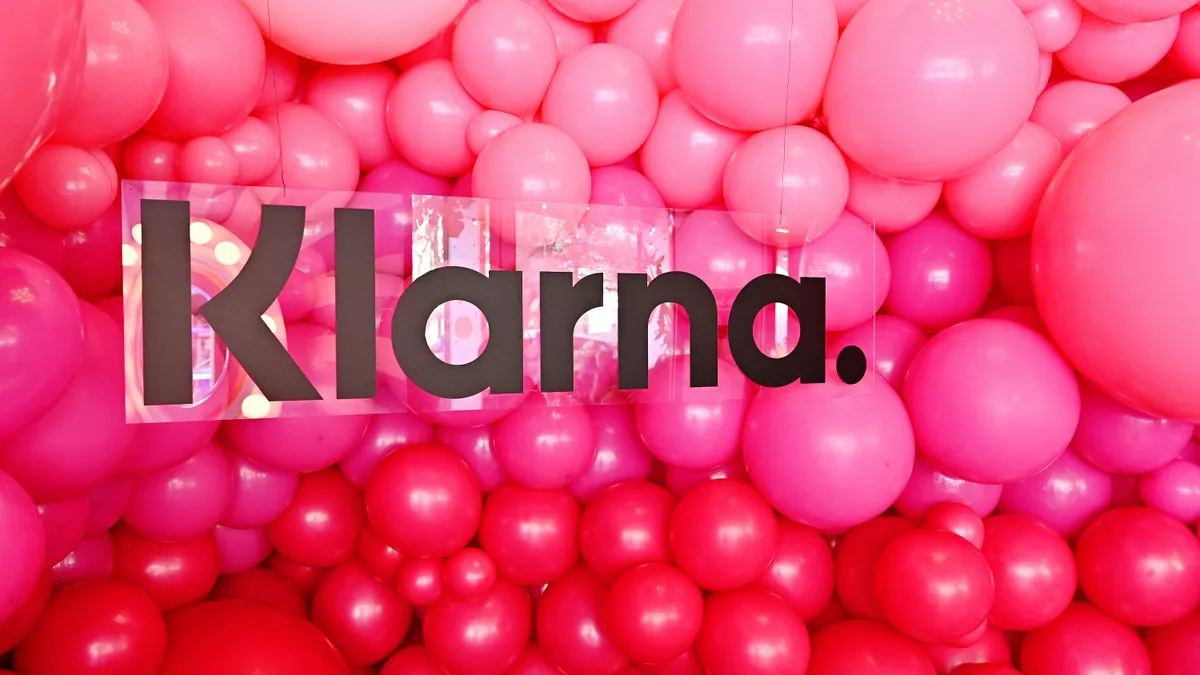Dive Brief:
- Sweden-based buy now, pay later provider Klarna Bank AB is putting its popular "Pay in 4" payment option on a physical Visa card issued by WebBank, which consumers can use in stores or online, according to a Thursday news release. The U.S. card rollout follows the card's debut in the U.K., Germany and Sweden.
- Interested consumers can join a waitlist, and the card "will be available to U.S. consumers in the very near future," the release said. A company spokesperson couldn't be reached for comment on a more specific date. When the Klarna Card was launched in the U.K. last month, about 450,000 consumers joined the waitlist in a matter of days, the release said.
- BNPL companies have positioned the payment option as an alternative to credit cards’ interest rates and fees. Klarna co-founder and CEO Sebastian Siemiatkowski said in the release the card "provides consumers with a real alternative to high-cost credit cards and lets them take the power of 'Pay in 4' everywhere they go."
Dive Insight:
The U.S. launch of the Klarna Card comes as BNPL – which first took hold outside the U.S. – skyrockets in popularity domestically. The U.S. is Klarna’s fastest-growing market: Its customer base has increased by 70% over the past year to 25 million users, and its app has about 6 million monthly active U.S. users, according to the release.
"We see, of course, fantastic growth in the U.S. That’s the market we’re the most excited about," Klarna's Chief Product Officer David Fock recently told Fortune.
The BNPL provider splits a shopper’s purchase over a defined period of time and charges merchants a fee on each transaction. As it's become an especially popular payment option with younger shoppers, retailers have been quick to partner with Klarna or competitors like Australian Afterpay — owned by Block — or San Francisco-based Affirm, which also went the waitlist route with its debit card.
BNPL's growth has coincided with that of e-commerce during the COVID-19 pandemic, and the introduction of a physical card is indicative of BNPL seeping into the brick-and-mortar side of retail.
In Sweden and Germany, Klarna has racked up about 800,000 cardholders, CNBC reported. Based on the interest in those locations and the U.K., Klarna has taken note of "how strong the demand is for fair and transparent alternatives to conventional card offerings," Siemiatkowski said in the release.
That demand has led investors to pour money into companies like Klarna, which is among the most valuable unicorns in the global payments space. It was valued at $45.6 billion when it raised $639 million in June 2021, and company executives are considering another fundraising round that could boost its valuation as high as $60 billion, Bloomberg reported.
As Klarna has made an effort to broaden its reach internationally, the BNPL firm launched a browser extension in December that allows shoppers to opt for its installment payments method with any online retailer. Currently, Klarna processes 2 million transactions daily and counts 100 million active consumers globally, per the release.
Meanwhile, regulators are watching. Klarna is one of five BNPL firms the Consumer Financial Protection Bureau — concerned about consumer debt levels and companies mining personal data for marketing purposes — has demanded information from. Fock told Fortune "proportional regulation is a good thing."
"We think, through this process, they will see the benefits of this product," Fock said of regulators.

















